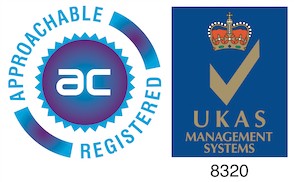Canadian Bill S-210: Age Verification Legislations Sees Continued Debate
The question of how to protect young internet users is hotly contested. It’s no secret that the internet is full of potentially harmful content, and regulators are finding it increasingly difficult to prevent young people from being exposed to this material. Canadian Bill S-210 promises to do just that, but the legislation is being met with significant pushback.
In this blog, we examine Canadian Bill S-210, discuss what it entails, why it’s being criticised and what it might mean for site operators, regulators and the end user as we head towards 2025. Let’s find out more.
What is Canadian Bill S-210?
Canadian Bill S-210 is also known as the ‘Protecting Young Persons from Exposure to Pornography Act’. While its shortened title might be vague, the bill’s full name clearly illustrates its intended purpose. To put it simply, the bill intends to prevent underage users from exposure to adult material by imposing strict age checks at the point of access.
The legislation outlines the repercussions site operators would face if they were found to be in breach of the proposed rules. For a first-time offence, a fine of $250,000 would be imposed. A second offence would incur a fine of $500,000. Operators that continue to breach the rules could see their platforms blocked by service providers.
According to the bill, operators must make use of age verification software to confirm that users accessing their platforms are over the age of 18.
When Will the Bill Roll Out?
The bill was first proposed to the Canadian Senate in 2021. It quickly passed and moved on to the country’s House of Commons for further debate. However, it was here that the legislation stalled, and it continues to be met with serious pushback.
Critics of the bill claim that the restrictions it would impose are too broad and that they would have a serious negative impact on online services, limiting access to a range of platforms for people of all ages. However, supporters of the bill maintain that these strict measures are necessary to protect young internet users.
Canadian Bill S-210 is currently being debated in the House of Commons. Only after agreement is reached in this chamber will the legislation finally be passed into law. As to when this might be, it’s difficult to say, and we can certainly expect further debate before the bill can move forward.
What Does the Future Hold?
Despite the controversies surrounding the legislation, Canadian Bill S-210 is a clear indicator of shifting attitudes towards the regulation of digital content. We have seen similar laws proposed in other countries, such as France, and the protection of young people is becoming an increasingly salient topic in today’s digital age.
Moving forward, site operators must have age verification processes in place, and the most effective way to do this is to partner with a reputable age verification solution provider.
Conclusion
The democratisation of information and content online has been revolutionary. However, it also carries risks and can expose young people to potentially harmful material. Legislation like Bill S-210 can be a solution, but it relies on the use of reliable and effective age verification technology. AgeChecked is here to help operators meet these new standards. Our solution can be integrated into platforms seamlessly and deliver fast, accurate results.






